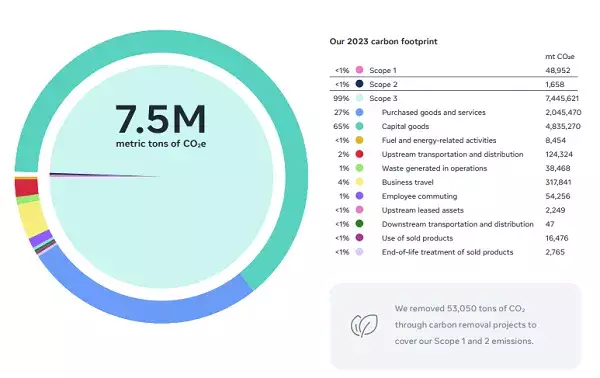In recent times, Meta has made considerable efforts to project itself as a responsible corporate entity through the publication of its “Responsible Business Practices Report.” This ambitious 144-page document covers a multitude of topics encompassing the company’s foray into artificial intelligence (AI), its vision for the metaverse, diversity in supplier relationships, environmental sustainability, and measures to protect young users online. While the report predominantly emphasizes AI’s transformative potential, it also serves as a lens through which to gauge the credibility of Meta’s commitment to responsible practices.
The AI Revolution: A Double-Edged Sword
At the heart of Meta’s report is its commitment to expanding access to AI technologies. The claim advocates for democratization, suggesting that as this rapidly evolving technology disseminates across global regions, it will reduce disparities and promote economic opportunities. Yet, this optimism feels somewhat hollow. The assumption that open-source initiatives will lead to equitable access overlooks the nuances surrounding technological literacy and infrastructure disparities that exist in different parts of the world. Regions lacking robust technological frameworks may continue to lag behind, exacerbating existing inequalities rather than alleviating them. Furthermore, Meta’s accelerated AI deployment raises ethical concerns about the implications of these technologies, underscoring the need for a more responsible approach to ensure that advancements do not inadvertently perpetuate harm—a risk that the company seems to side-step.
In discussing the metaverse, Meta outlines a vision that merges augmented reality (AR) and virtual reality (VR) to reshape social interaction. Described as the “next evolution in social technology,” this ambitious initiative positions Meta at the forefront of digital innovation. However, critics may argue that the company’s framing of the metaverse as a utopian solution for connection overlooks inherent challenges, such as privacy concerns and the potential for increased digital addiction. The immersive nature of the metaverse could exacerbate anxieties about social isolation, displacement, and the erosion of authentic connections—issues that have already plagued online interactions. Moreover, juxtaposing the report’s optimistic rhetoric against the real-world ramifications of existing social media platforms raises suspicions about the company’s intentions.
Meta has highlighted its financial investments in privacy initiatives, reporting over $5.5 billion dedicated to enhancing data protection since 2019. While these numbers paint a commendable picture of Meta’s commitment to safeguarding user data, it prompts questions about the efficacy of such measures. The narrative paradoxically positions Meta as both a quote-unquote guardian of privacy while simultaneously maintaining a profit-driven focus that often prioritizes engagement over protection. The tension between user privacy and monetization strategies remains unresolved, and the implications for user trust are undeniable. Moreover, the company’s record on data breaches and controversies over user consent complicates its narrative of accountability.
In an intriguing yet contentious section of the report, Meta reveals its strategy for political contributions, facilitating support for candidates that align with its corporate interests. While the notion of corporate entities engaging in political discourse is not novel, it raises ethical dilemmas about transparency and accountability. The lack of direct endorsements from CEO Mark Zuckerberg does little to absolve the company’s role in navigating the often murky waters of political influence. This aspect of business practices leaves a sour taste, suggesting a potential conflict between profit motivation and the genuine interests of its userbase. Stakeholders have a right to be concerned about how these affiliations shape company policy and public discourse.
Meta’s “Responsible Business Practices Report” presents a comprehensive overview of the company’s ambitions and commitments across various fronts. However, the optimistic façade belies critical truths about the challenges and risks associated with rapid technological advancements and corporate governance. While promoting equity in AI and a vision for immersive social experiences, Meta navigates an ethical minefield that warrants skepticism. Its self-portrayal as a responsible actor in an increasingly complex digital environment stands in stark contrast to the realities facing both its users and the broader societal landscape. As stakeholders grapple with these contradictions, it becomes increasingly clear that responsibility in the digital age requires more than reported investments—it demands consistent, actionable accountability.


Leave a Reply